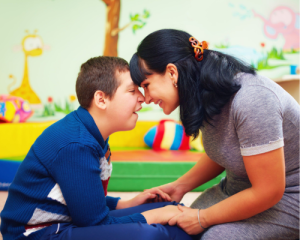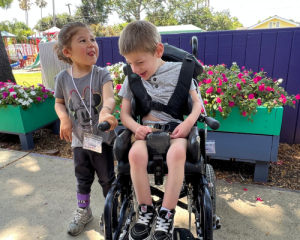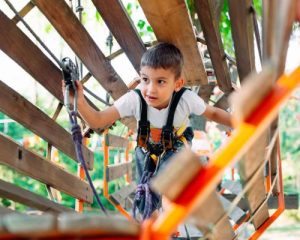
Q: [School Age] In the aftermath of recent and recurring school shootings in the news, how do I talk to my child about these tragedies to reduce their fear and anxiety?
A: 1. Prepare and Take Care of Yourself: Be sure to be aware and mindful of your own worries and fears, as not to inadvertently project them onto your youngster. Research suggests that how events are perceived and remembered have been found to predict mental health outcomes. In these types of circumstances, youngsters need their parents to be secure bases (grounding forces) for them, amidst a potential whirlwind of uncertainty and disillusionment. With this said, it is equally as important for parents to take care of themselves psychologically and emotionally, in order to be fully attuned to the needs of your youngster. One suggestion for parents is to regularly get together with other parents in the local community who has also been affected.
2. Assess, Validate and Be Present: Assess your youngster’s knowledge of events, their beliefs, and feelings. Open-ended questions allow youngsters to think, reflect and give opinions and feelings, which will help you with understanding how your youngster views things. Open-ended questions start with “tell me, why, what, how, describe”. Closed-ended questions start with “do, would, are, will, if”. Coming from a place of exploratory curiosity will provide your youngster with an opportunity to be heard and validated and will provide you the opportunity to understand your youngster’s unique inner workings, and how they view themselves and the world. Once you have the whole picture, you can provide your youngster with a secure foundational base to feel safe and return to you for future support. This will look like gently challenging and addressing any thoughts and beliefs that may be detrimental in the long-run, engaging in more of a back-and-forth dialogue with your youngster, being present, and providing any additional emotional support.
3. Maintain the Status Quo: Youngsters require a sense of structure and predictability in scheduling and with routines of daily living. After such a horrific event, it is typical for there to be a transitional period where things are out-of-sorts. After a short period of time, it is best to reinstate normalcy in all areas of the youngster’s lives to provide a sense of security, order and predictability.
4. Address Where Necessary: Be mindful of what is said in your own household in adult conversation that can be heard in earshot of your youngster. Second, if you overhear your youngster in social situations with his or peers, notice the beliefs their peer group has when it comes to their stance on crime (mass-shootings) and perceived safety. In the event you know that your youngsters peer group has a long-term insecure view of safety secondary to a mass-shooting, it will be important to sit down with your youngster and assess their thought process. This can be done by asking open-ended questions and coming from a place of exploratory curiosity.
5. When to Seek Professional Help: Research indicates that exposure to such violence or learning that a close friend or loved one has faced such exposure, is associated with increased incidence of a range of negative mental health outcomes, ranging from post-traumatic stress disorder (PTSD), and major depression. In the event you notice your youngster is exhibiting noteworthy changes in these areas of functioning, it is likely beneficial to seek professional help.
 Dr. Danielle Forshee has worked full-time in the fields of clinical psychology and social work while concurrently pursuing her degrees, licenses and certifications. Her areas of specialty include treating high-conflict situations, such as those experiencing marital, relationship, and family problems.
Dr. Danielle Forshee has worked full-time in the fields of clinical psychology and social work while concurrently pursuing her degrees, licenses and certifications. Her areas of specialty include treating high-conflict situations, such as those experiencing marital, relationship, and family problems.











Leave a Reply